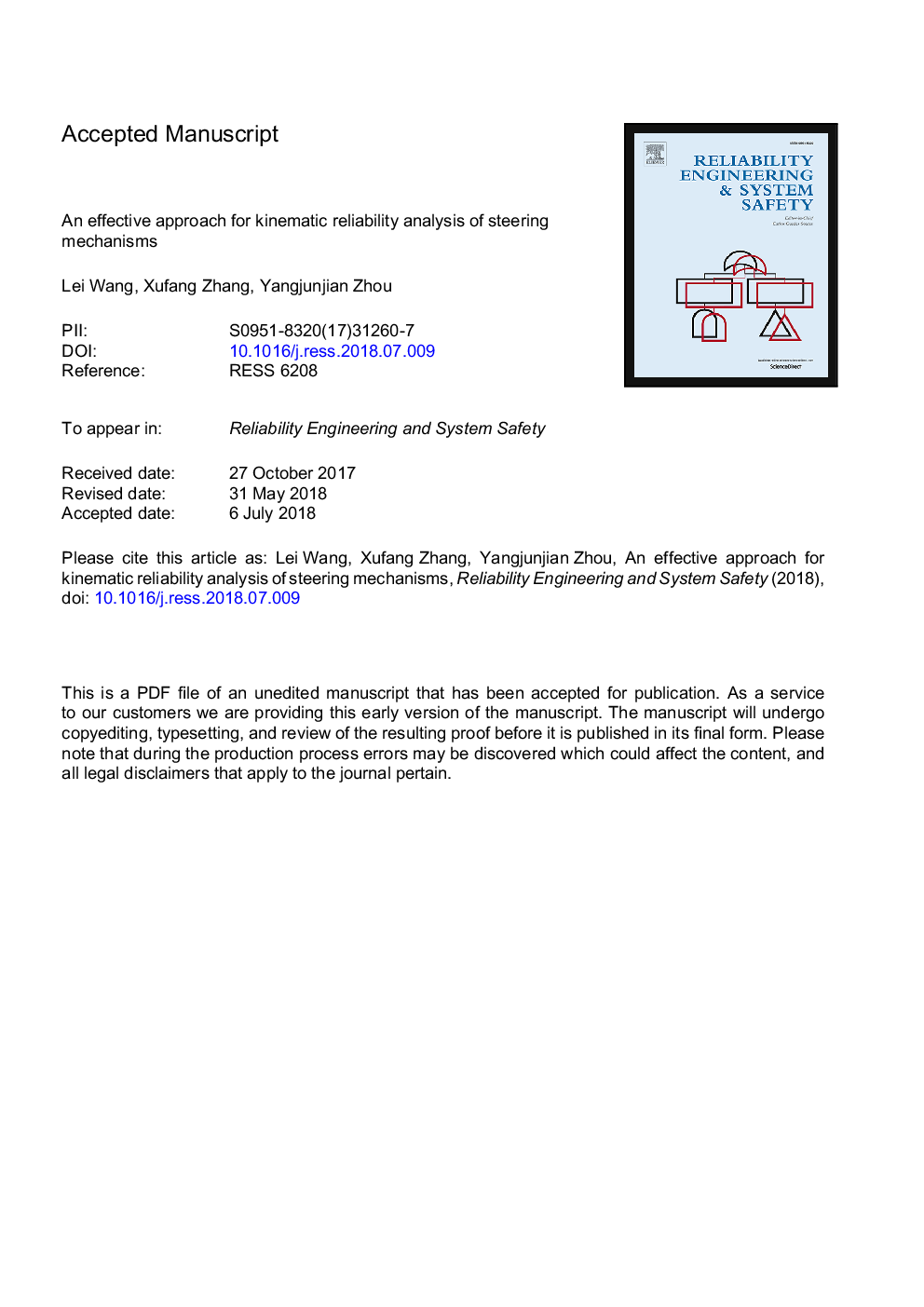| Article ID | Journal | Published Year | Pages | File Type |
|---|---|---|---|---|
| 7195053 | Reliability Engineering & System Safety | 2018 | 41 Pages |
Abstract
The paper presents an effective surrogate model for system reliability analysis of mechanisms based on an extreme-value kinematic error model and the Kriging approximation. In this regard, two types of kinematic reliability problems are considered, i.e., the system reliability that requires the kinematic error remains within an accuracy threshold along an entire output trajectory, whereas the time-dependent reliability accounts for gradually propagated system failure domain due to the varied pseudo-time parameter from its beginning to the current realization. Both kinematic reliability problems need to evaluate the extreme-valued error function presented in the mixture of absolute and maximum operators. By contrast, the simple position-based error function allows developing accurate surrogate models with a rather small number of training samples. Therefore, an approximation model was proposed to deal with kinematic reliability problems of steering mechanisms. Compared to available reliability methods in the literature, results have demonstrated high accuracy of the proposed method for various kinematic reliability problems. Note that the proposed method for time-dependent reliability analysis requires only one round of design of experiment, rather than repeatedly running the kinematic model like the first-order reliability method. It therefore provides an effective simulation tool for kinematic reliability analysis of mechanisms.
Keywords
Related Topics
Physical Sciences and Engineering
Engineering
Mechanical Engineering
Authors
Lei Wang, Xufang Zhang, Yangjunjian Zhou,
